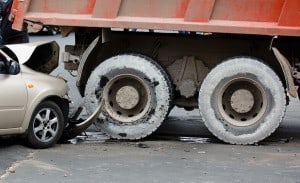The Affirmative Defense of Unavoidable Accidents in Trucking Cases
March 22, 2017
Like all affirmative defenses, the unavoidable accident defense must be supported by evidence. The instruction is proper only when there is evidence that the event was proximately caused by a condition beyond the defendant’s control and not by the negligence of any party to the event. Thus, a party is not entitled to an unavoidable accident or sudden emergency instruction when their negligence is what made the collision unavoidable or created the emergency.
In trucking cases, the affirmative defense of “unavoidable accident” is oftentimes misused. Courts have held that a driver with a brake problem driving on a slick road was not entitled to an unavoidable accident defense. Similarly, mechanical failures and poor reaction to driving conditions have been held to not be sufficient to support an unavoidable accident defense.
Courts consider an unavoidable accident instruction with scrutiny because of the risk that the jury will be misled or confused by the perception that the instruction represents a separate issue distinct from the general principles of negligence. In Hukill v. H.E.B. Food Stores, Inc, the court stated:
[T]o charge on an unavoidable accident is in effect to give the jury an attractive alternative to the difficult determination of negligence. Such a charge is a third alternative to both the negligence and causation by the parties, and as such constitutes an unconscious or hidden rebuttal to the essential issues to be determined, because it directs the jury away from the real issues submitted and the burden imposed by law of proof by the parties.
Thus, it is vital to identify the exact facts which serve as the basis for the affirmative defense of “unavoidable accident.” If there are no facts supporting the defense, the opposing party should consider a motion to dismiss it or risk the danger of confusing the jury.
